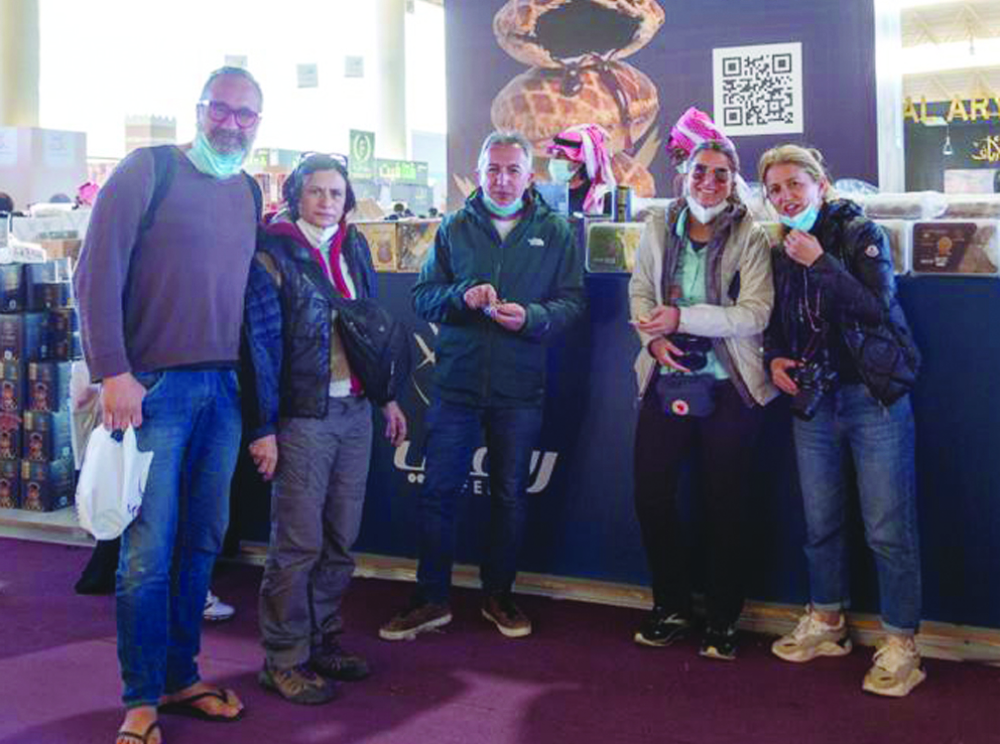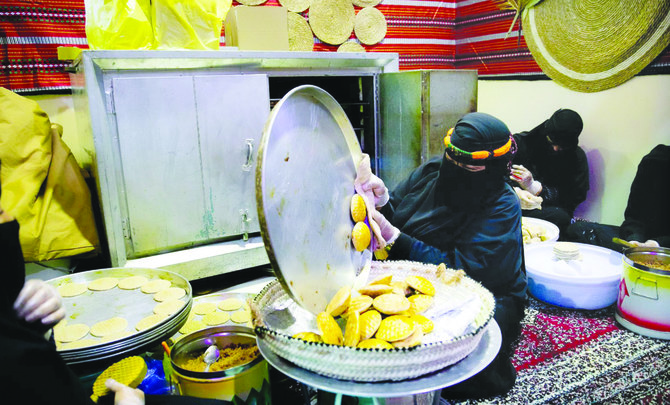JEDDAH: With its crunchy texture on the outside and soft filling consisting of molasses, dates and cinnamon, klaija have long been one of Saudi Arabia’s favorite sweets.
The dessert from the Qassim region in the heart of the Kingdom is usually made and served in winter with Saudi coffee.
It is believed to have made its way through Iraq around 500 years ago before becoming an integral part of the Saudi culture and cuisine. 
Such is the popularity of the crispy cookie that a klaija festival has been held in Buraidah, capital of the Qassim region, every year since 2009.
The festival marked its 13th edition this year and kicked off on Jan. 26 for 10 days. Due to its popularity, Qassim Gov. Prince Faisal bin Mishaal extended the festival until Feb. 8.
HIGHLIGHTS
• The dessert from the Qassim region in the heart of the Kingdom is usually made and served in winter with Saudi coffee.
• The festival marked its 13th edition this year and kicked off on Jan. 26 for 10 days. Due to its popularity, Qassim Gov. Prince Faisal bin Mishaal extended the festival until Feb. 8.
• This year the festival recorded impressive sales of SR1 million in its first five days, while the 12th edition of the event recorded an income of about SR7 million.
Scores of local Saudi women and families gathered to sell their freshly baked homemade dessert and other treats.
In November 2021, UNESCO included Buraidah in its “creative cities network” for its standing in gastronomy.
According to the Saudi Press Agency, the Qassim governor said: “It is a chance to show local and international guests our products and appreciate Buraidah for this global achievement.”
The festival, organized by Qassim Chamber of Commerce and Industry, aims to create economic opportunities for locals and their families, and help market their products.
This year the festival recorded impressive sales of SR1 million in its first five days, while the 12th edition of the event recorded an income of about SR7 million.
About 300 families from Qassim took part in the festival this year, with visitors enjoying the traditional dessert and witnessing klaija being made at cooking stations.
Locals expertly showed off their klaija-making skills, from kneading the dough to preparing the filling, and molding and baking the treats.
The crispy cookies are made of wheat flour and stuffed with dates, honey, ghee, olive oil, sugar or date molasses, saffron, ginger powder, cardamom and cinnamon. It is then brushed with egg wash to give it a shiny golden-brown color once baked.
Visitors often buy klaija in bulk to treat their families and friends living abroad. It is free of preservatives and has a long shelf life.
With more than 35 years’ experience, Umm Abdullah is one of the best-known klaija makers in Saudi Arabia.
She has been taking part in the klaija festival since its first edition. Abdullah’s klaijas are popular not only in Qassim but also worldwide.
“I receive orders from the US, India, Bahrain and Kuwait,” she told Arab News.
While younger people experiment making the dessert with different fillings, Umm Abdullah says the secret of her success “is sticking to the age-old traditional recipe and using the traditional klaija oven to get the perfect brown color and crust.”
The festival also featured many other activities and programs, including folkloric shows.




































